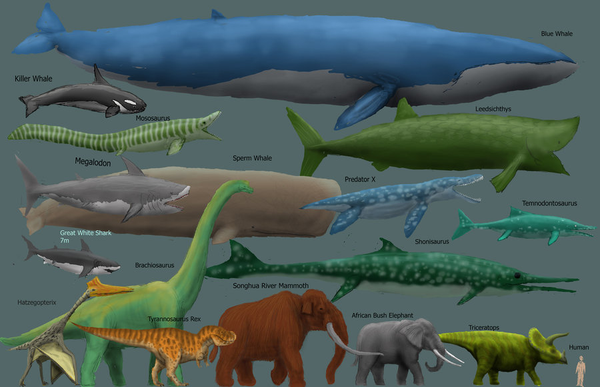While still in the experimental stages, xenotransplantation is a potentially life-saving option for people with such ailments as severe heart disease and kidney failure. Preliminary data from experiments using transplanted pig cells in patients with diabetes and Parkinson's disease are encouraging.
- Why is xenotransplantation useful?
- Why is xenotransplantation wrong?
- What are the advantages and disadvantages of xenotransplantation?
- What are the risks of xenotransplantation?
- What is the meaning of xenotransplantation?
- When should xenotransplantation be used?
- How much does a xenotransplantation cost?
- What is the major barrier to successful transplantation across animal species xenotransplantation )?
- What is the first major concern about xenotransplantation?
- Do you think xenotransplantation is safe?
- What are the benefits of genetically engineered organs?
- Has there been a successful xenotransplantation?
- Why are pigs good for xenotransplantation?
- Is xenotransplantation used today?
- How is xenotransplantation done?
- Who invented xenotransplantation?
Why is xenotransplantation useful?
What are the potential benefits of xenotransplantation? Xenotransplantation could potentially provide an unlimited supply of cells, tissues, and organs for humans. ... Cellular xenotransplants may provide treatment for people with diabetes, Alzheimer's or Parkinson's diseases.
Why is xenotransplantation wrong?
Using the hearts of pigs for humans in need of transplants has been a major issue in xenotransplantation. There are dangers associated with such use, such as immunological rejection of the organ, endogenous viruses infecting the recipients, and issues of privacy.
What are the advantages and disadvantages of xenotransplantation?
There are pros and cons to Xenotransplantation. Xenoplantation aims to increase organ availability, it has the potential to open up new areas of research, and could end transplant list. The cons include high rejection rate, moral/ethical issues, and transfer of diseases from animals to humans.
What are the risks of xenotransplantation?
One of the major concerns in xenotransplantation is the risk of transmission of animal pathogens, particularly viruses, to recipients and the possible adaptation of such pathogens for human-to-human transmission.
What is the meaning of xenotransplantation?
Xenotransplantation is any procedure that involves the transplantation, implantation or infusion into a human recipient of either (a) live cells, tissues, or organs from a nonhuman animal source, or (b) human body fluids, cells, tissues or organs that have had ex vivo contact with live nonhuman animal cells, tissues or ...
When should xenotransplantation be used?
While still in the experimental stages, xenotransplantation is a potentially life-saving option for people with such ailments as severe heart disease and kidney failure. Preliminary data from experiments using transplanted pig cells in patients with diabetes and Parkinson's disease are encouraging.
How much does a xenotransplantation cost?
The Institute of Medicine in 1996 tried to estimate what the actual cost of xenotransplantation would be in terms of health care. And they estimated the cost to $20 billion a year.
What is the major barrier to successful transplantation across animal species xenotransplantation )?
The immunologic barriers to successful xenotransplantation are primarily related to the presence of natural anti-pig antibodies in humans and NHPs that bind to antigens expressed on the transplanted pig organ (the most important of which is galactose-α1,3-galactose [Gal]),5 and activate the complement cascade, which ...
What is the first major concern about xenotransplantation?
As discussed above, one of the primary concerns about xenotransplantation is the emergence of new, unrecognized pathogens in the graft recipient.
Do you think xenotransplantation is safe?
Xenotransplantation carries the potential risk of the transmission of infection with the cells or tissues of the graft. The degree of risk is unknown in the absence of clinical trials.
What are the benefits of genetically engineered organs?
Genetic engineering in humans can be used to regrow organs to save lives. Genetic engineering can also replace damaged or bad genes to cure some diseases in humans. Finally, genetic engineering scientists can create medicines that will cure people of sickness.
Has there been a successful xenotransplantation?
The organ was successfully attached for three days in an experimental procedure on a brain-dead patient. It was the culmination of years of work; scientists have dreamed of xenotransplantation, in which organs from animals are put into humans, for decades.
Why are pigs good for xenotransplantation?
Since pig organs are similar in size and physiology to human organs, they are good candidates for transplant and would be readily available when needed. The concept of cross-species (pig-to-human) transplantation is known as xenotransplantation, and the transplanted organs or tissues are called xenografts.
Is xenotransplantation used today?
What xenotransplants have been done? There have only been a few attempts at human xenografting over the years, but no human solid organ xenograft projects are currently approved by the FDA. "Baby Fae", a child born with a malformed heart survived for a short period of time with a baboon heart.
How is xenotransplantation done?
Solid organ xenotransplantation is a procedure whereby an animal organ like kidney or liver is transplanted into human as a replacement of the original organ. ... Human/Animal Hybrid is a procedure where human cells are grown in a culture with non-human animal cells that are transplanted back into human patients.
Who invented xenotransplantation?
Xenotransplantation, the transplantation of animal organs into humans, has long been appealing as a possible solution for organ shortage. The idea behind xenotransplantation dates back to 1667, when the French doctor Jean-Baptiste Denys tapped the veins of farm animals to perform human blood transfusions [2].
 Animalscaretips
Animalscaretips



